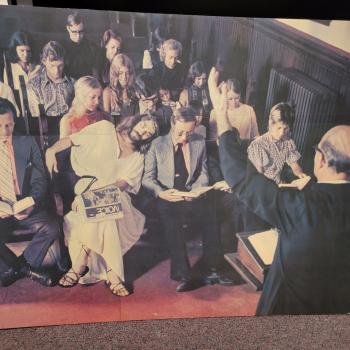Something must be said here about the quality of Isaacson’s biography of Leonardo. It can almost be said to be a work of art in itself. The finest paper is used, the many many prints of Leonardo’s paintings and illustrations from his notebooks are top drawer, and the writing is excellent, with wonderful footnotes for those who want more. And I think in many, many ways Isaacson probes to the heart of what makes Leonardo tick. Here are some of his more interesting and enduring and endearing qualities: 1) there was an insatiable love for learning, even though he never attended more than an elementary abacus school. He was like Ben Franklin in this regard. His primary teachers were experience and experimentation, as he foreshadowed much that was to come in terms of using a scientific method of exploring things. Later in life, he came to better appreciate the received wisdom from the past, and he was an avid reader, much like Franklin as well. 2) he sought knowledge for its own sake, not merely for prudential reasons or for personal gain. Indeed, he was not interested in becoming rich or ‘making money’; 3) he retained a child-like sense of wonder at the intricacy, the mystery, the beauty of life and the world; 4) like Sherlock Holmes, he knew how to go beyond mere seeing, to observing and drawing conclusions, paying attention to even small details. Indeed, he would often start with the details, not because ‘the devil is in the details’ but because the real truth of what makes things tick is in the details; 5) he realize it was important to learn in a cross-disciplinary way, studying various forms of fledgling science (he was not good at math, but was very good at geometry and visual modeling); 6) he respected facts always, and was prepared to revise his theories to fit the facts as he learned them. He didn’t let pride in an elegant theory get in the way of getting to the bottom of things. 7) he did not see imagination as the enemy of reality, rather he sought to bring fantasy and reality together profitably. 8) he let his reach extend beyond his grasp. He knew that if you aimed for the stars and failed to get there, you might still land on the moon and make great discoveries! 9) he made endless to do and to learn lists, and gave himself time and opportunity to wander a bit from imagination to reality and back again. 10) he believed in collaboration. He was not merely an isolated genius cooking up things all alone in his studio; 11) he left a paper trail of his learning and suppositions as any great thinker should do, so future generations could build on what he accomplished; 12) he was open to mystery even unto the end of his days.

















